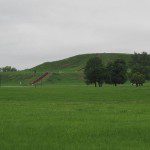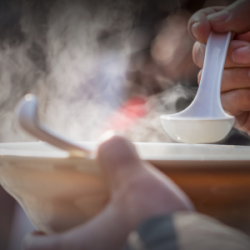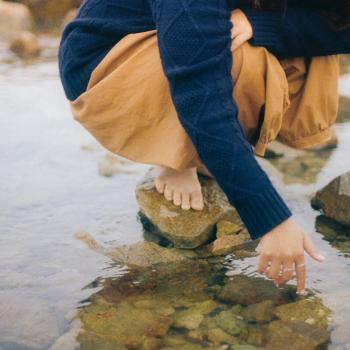We both stared at the handprint, speechless and awestruck. Slowly we turned from the image to face each other. Our eyes locked. We knew we were witnessing something astounding, and we were a bit frightened. It was just so strange; we had no idea what it was. Our minds could not comprehend what our eyes were telling us.
"Mom, I don't get it. What is that?" Tanner asked, turning his eyes back to the mirror.
I thought as carefully as I could before answering him. Reacting dramatically wouldn't serve either one of us. My maternal instincts kicked in, and I resolved to calm down. I wanted to sound stable and set a good example for him. Children read us more clearly than we often realize, I had learned, and overreacting wasn't helpful to him — or me, for that matter. But I also knew I had to be honest, and pretending it wasn't extraordinary was disingenuous.
"I'm not sure what it is, Tanner."
Then I ventured a question of my own: "Do you think there's any relationship to Max since it's the first anniversary of his death?" I knew he loved Max, so he wouldn't be frightened
by the question. I also knew it wasn't the first time we had witnessed something strange after Max died, but nothing had been remotely close to the shocking nature of this handprint.
"Maybe, but how weird is that? And how could he make it happen if he's gone, Mom?" Tanner asked.
Of course, I had no answer, only a sense that I needed to remain calm and inquisitive but not emotional. "I guess for now we don't know, Tanner. Why don't you take a break and go out to the driveway and shoot some baskets?"
"Okay, Mom, but call me if you need me," he said, sounding very grown‑up.
I gave him a hug and told him I'd join him outside in a few minutes. I grabbed my camera and took several photographs. I didn't know what this image was, but I did know I had to document it. I should have done more, like get a sample of the powdery substance for analysis or have a forensic examination conducted of the fingerprints. But I was so stunned, it just didn't occur to me.
What did occur to me was the implication of the timing of the handprint. It showed up on the exact date of Max's death, immediately raising the question of whether Max was reaching out to me. Like most wives, I could recall precisely what my husband's hands looked like. The wide palm print on the mirror, juxtaposed with the long, narrow fingers, was reminiscent of the shape of Max's hands.
I didn't have an explanation for the phenomenon, but it certainly didn't fit neatly with the traditions I had been schooled in growing up. As a child, I had been heavily influenced by my father, a Presbyterian minister deeply devoted to God and his faith. But like many people, I had evolved in my thinking as I grew older. Now my faith was not as central to my daily life, so I didn't have a tidy solution for thinking how this handprint might relate to heaven or an afterlife. What I did know was that I was experiencing an entirely foreign dimension. I was baffled by the mystery.
I had to ask myself, could this be a paranormal event? Was this a ghost? Because Max had died in our home, had a part of him remained? Was he visiting me to let me know there was more? Had he figured out a method for contacting me that was nothing short of miraculous? I've always been open in life, and I wanted to be open now. But I was scared, too. Entering the unknown was intimidating.
From a practical standpoint, I didn't have time to be distracted and frightened. Instead, I compartmentalized the remarkable event, setting it aside for further thought when I could attend to it. After all, I had a son to raise and a job to do. I was overwhelmed with surviving my grief. My life had been ripped apart by Max's death, and it was all I could do to function in my roles as mother and newspaper executive. I cherished those roles. They were what fulfilled me. Succeeding at them was imperative. I could not fail.
My upbringing influenced me, as well, in setting the event aside. My father's role as a minister meant he was a prominent figure in our community. We were taught as children that our personal behavior represented not just ourselves but our family and, by extension, Dad's public position. We were expected to behave accordingly and not draw outside the lines of convention. That example stuck with me as an adult.
Now as publisher and president of The Sacramento Bee, in the state capital of California, I was a public figure myself. Our publication was influential not only locally but also statewide and nationally as the flagship of the McClatchy Company newspaper chain. When I was being recruited, I remember a McClatchy executive asking me, "Are you comfortable with lots of public attention?" It wasn't until I was further along in the job that I came to understand the wisdom of that question. My life was naturally under the microscope, and I wasn't about to foster any criticism that could emanate from disclosing such a strange event. So I kept it private.




